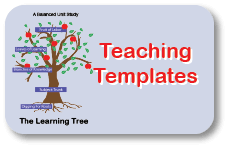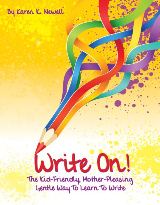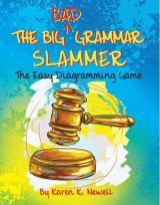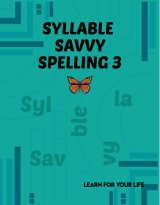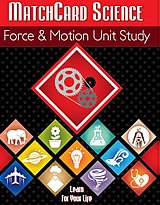More Writing Rubrics
We have more writing rubrics for elementary, middle school and high school as well as instructions for developing your own.
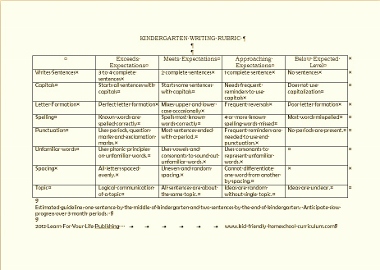
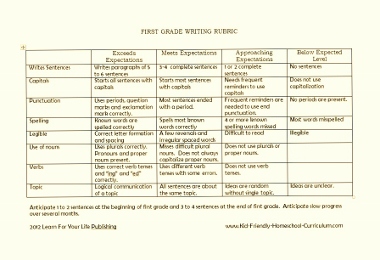
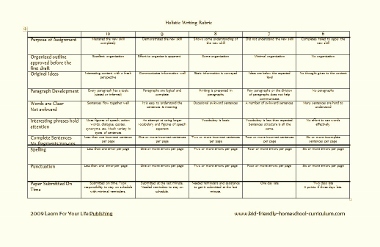
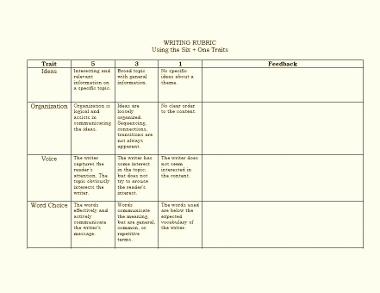
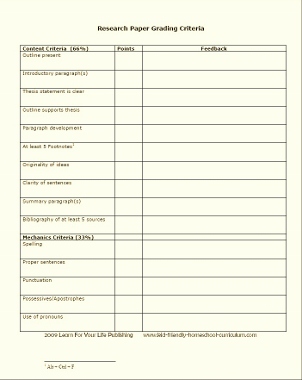
Creating Your Own Rubric
You can always develop more writing rubrics by individualizing the grade to the purpose of the assignment. The steps below will allow you to create a rubric specifically for your students. Our research paper rubric can be used as a model that can be modified.To develop your own writing rubrics, think through the steps below.
What is the goal of the writing assignment?
If there is a new skill being introduced or practiced, that goal should be incorporated into your rubric. If the purpose is to demonstrate the students' aquisition of knowledge on an assigned subject, that should also be reflected. Stating the purpose of the assignment facilitates the development of your rubrics.How much weight should be given to writing mechanics?
Mechanics usually contribute between 20% to 50% of the students' score. As a general rule of thumb, I usually use 30% to 33.33% depending on which rubric I am using. Writing-intensive college courses often grade mechanics as 50% of the grade. Therefore, your college bound student needs to be able to produce mechanically correct term papers.Plan the Criteria for Your Writing Rubric
The writing rubric will assess each of the criteria you choose. I often use 10 criteria for weekly writing assignments and creative writing; and reserve the 15 criteria (ten for content and 5 for mechanics) for the annual research paper.Have the student read the list of criteria out loud
This helps the student focus on the goals of the assignment. In addition to reading the criteria before starting to write, they should also review it before submitting their paper. Consider having them grade themselves on each criteria.Before grading, read the paper through yourself one time.
Since content is the most important, focus on it first. Ask yourself: "What is this paper communicating?"With the first reading, focus on the main points and the organization of ideas. Was the meaning clear? Were the main points well organized?
If the main points are not organized, a student in middle school or high school needs to re-write it. Disorganized writing cannot convey anything. The student needs to be taught how to organize points. This is not a difficult skill to teach, but it does take some practice for the student to master. Without that organizational skill, his or her writing will never improve.
Assign Points
Starting with organization, and for each of the other criteria on your evaluation tool, you need to assign points for each criteria. Each of the ten criteria offers the student the opportunity to earn up to ten points. If they acheive ten points on all ten criteria, they would earn 100 points - a perfect score. This, of course, is seldom achievable.On the other hand, if the student completely fails a criteria, he or she earns 6 points. Why 6 points and not 0? Simply stated, six points equals a 60%, which is a failing grade. There are only a few times I give a zero on a criteria. Of course not doing the assignment qualifies for a zero; or submitting three days late gets a zero for that category.
Simply add up all the points and you will have a percentage grade for the student's paper.
Check Out Our Sample Writing Rubrics
Visit our elementary writing rubrics page to find grade specific rubrics for your kindergarten through fifth grader.If you have a high school or middle school student, you will find our different essay rubrics helpful for evaluating and grading their written assignments.
About Our Site
Hands-On Learning



